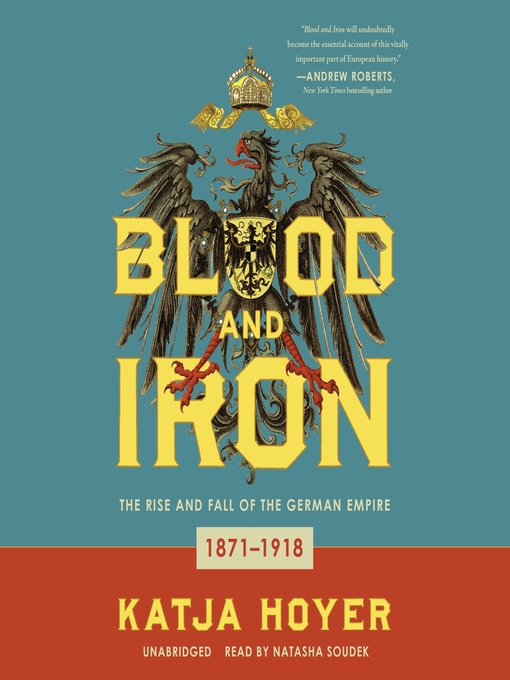This vivid fifty-year history of Germany from 1871–1918—which inspired events that forever changed the European continent—is the story of the Second Reich from its violent beginnings and rise to power to its calamitous defeat in the First World War.
Before 1871, Germany was not yet a nation but simply an idea.
Its founder, Otto von Bismarck, had a formidable task at hand. How would he bring thirty-nine individual states under the yoke of a single Kaiser? How would he convince proud Prussians, Bavarians, and Rhinelanders to become Germans? Once united, could the young European nation wield enough power to rival the empires of Britain and France—all without destroying itself in the process?
In this unique study of five decades that changed the course of modern history, Katja Hoyer tells the story of the German Empire's beginning to its defeat in World War I.
This often startling narrative is a dramatic tale of national self-discovery, social upheaval, and realpolitik that ended, as it started, in blood and iron.


